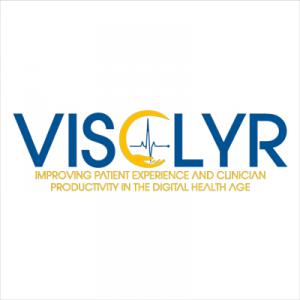Michael Joseph of Prime Dimensions to be Featured on CUTV News Radio
CENTREVILLE, VIRGINIA, UNITED STATES, October 31, 2018 /EINPresswire.com/ -- The digital age is finally bringing clinical and business transformation to healthcare. So how do stakeholders leverage such innovation and potentially disruptive technology to improve patient experience and outcomes, ease provider burden and lower costs?
Michael Joseph is the founder of Prime Dimensions, a healthcare services and solutions firm, specializing in digital health strategy, innovation and technology solutions. Prime Dimensions works with healthcare organizations to redesign, streamline and extend care delivery to achieve the key goals of digital health transformation: improved patient interactions and care coordination; increased provider productivity and efficiency; influencing behavior change for disease management, wellness, prevention and healthy lifestyles. Their cloud-based platform, Visolyr, provides core and enabling technologies to implement and enhance healthcare applications and digital health solutions that confront the most urgent, complex challenges and improve clinical, financial and operational aspects of care delivery.
“Healthcare should be regarded as a human right, but it’s quite obvious that the current business of healthcare delivery, in most instances, does not support that notion,” says Joseph.
According to Joseph, the transition from fee-for-service toward value-based payments is the right direction, but it is causing a seismic shift, as industry stakeholders figure out how to delivery higher quality care at lower costs. “There is an imperative among providers, payers (commercial and public), and employers to focus on wellness and disease prevention,” says Joseph.
Under value-based models, providers are held accountable for exceeding quality measures and patient experience expectations, so they are seeking innovative, cost-effective solutions to consume, integrate, and analyze data across disparate sources, including electronic medical records (EMRs), clinical applications and various hospital information systems.
“Healthcare is extremely complicated today, but we can’t lose sight of delivering high quality and exceptional experiences for the patient,” says Joseph. “As innovation and care delivery models continue to advance at a rapid pace, hospitals will be repurposed for future standards of care, creating pressure on ambulatory and post-acute care settings for keeping patients healthy and stable.” Digital health solutions, including telemedicine, virtual care, and remote patient monitoring, are key to success, especially for patients with chronic conditions.
So how do you actually use that data to improve patient care?
“It starts with interoperability and data liquidity,” explains Joseph. “From a continuity of care perspective, we have all this useful data we need to collect and integrate back into the EMR. With the HL7 FHIR standard and platform services, we can expose this data in very elegant ways within clinical workflows and both provider- and patient-facing applications.” Clinical workflows are critically important to physicians. If they're not getting the data they need at the right time, it's more work and effort, which compromises productivity and efficiency, so it's really about having the right data at the right time at the point-of-care.”
As value-based care models become more pervasive, care delivery will become less episodic and more continuous, compounding the unprecedented proliferation of digital health solutions. Today’s digital health solutions are centered around apps for smartphones and tablets that facilitate and automate more frequent and appropriate interactions to keep patients connected in the ambulatory setting.
As the trend for digital tools is moving toward mobile platforms and cloud-based services, innovators and designers must also consider how to enhance and enrich features and capabilities, so that the tools remain adaptive, flexible, simple and convenient. “We’re just at the dawn of a digital health transformation in which mobile and wearable devices are commonplace, but gaining traction are implantable devices, cyber pills and smart tattoos that can send constant streams of physiological data for near real time analyses,” says Joseph
Along with prominent industry leaders, Joseph announced empathy.health at HIMSS18 to bring empathy into the daily work of healthcare professionals as a strategic and humane imperative. “We are focused on the intersection of innovation, technology and care delivery. As an advocacy organization and virtual community, our success is shaped by a grass roots coalition and a sustainable business model that is currently being developed.” They are seeking to align with healthcare industry stakeholders and gain exposure through healthcare conferences and social media. Feel free to follow @empathy4health on Twitter and engage with them as well; the official hashtag is #Empathy4Health. For more information, they have also been featured in this dotHealth blog post.
“The user-experience for a digital health solution can't be a one-size-fits-all,” says Joseph. “The key to success is knowing how to appropriately engage users, based on necessity, urgency and personal preferences. i.e how, when and where to maximize frequency and depth of engagement so that digital health becomes ubiquitous to the patient experience. Moreover, as genomic data becomes more readily available, personalized treatment plans will become standard practice, ushering in the era of ‘scientific wellness,’ which emphasizes individualized interventions for disease prevention, wellness and healthy lifestyles.”
“We’re looking at the patient as part of the design of these solutions early on. We have tools that can answer the question of what's most relevant to the patient today. Embedding individual patient social data, preferences and values is essential. It’s all about creating exceptional user experiences to ensure user adoption. As industry stakeholders are re-evaluating all aspects of care delivery and the need for care delivery redesign, it’s critical that every interaction with patients, regardless of setting or media, be executed with compassion, empathy, humility and mindfulness.”
CUTV News Radio will feature Michael Joseph in an interview with Doug Llewelyn on November 2nd at 11am EDT.
Listen to the show on BlogTalkRadio. If you have a question for our guest, call (347) 996-3389.
For more information, visit www.primedimensions.com, www.visolyr.io and www.empathy.health
Lou Ceparano
CUTV News
(631) 850-3314
email us here
Visit us on social media:
Facebook



